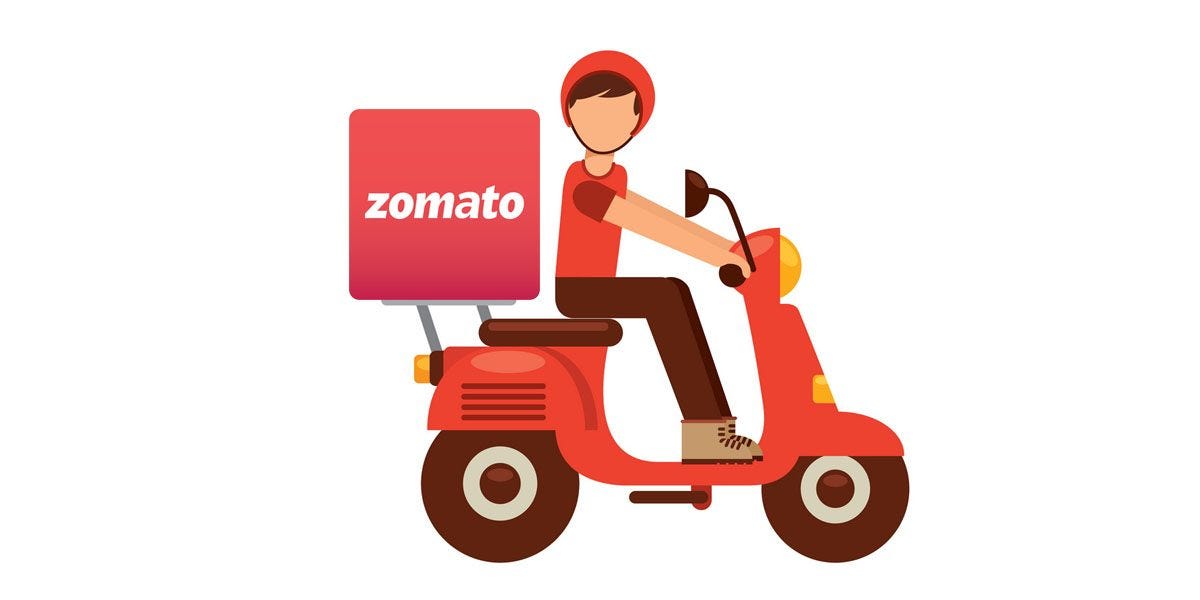Zomato IPO is a seminal event for the world of start-ups in India. Irrespective of one’s view on the valuation, this event will have a significant positive influence on start-ups and the broader economy.
Zomato’s start-
In November 2010, Deepinder Goyal and Pankaj Chaddah went for lunch at a cafe in the Ambience Mall in Gurgaon, a satellite town outside Delhi. The visit changed the way the two gentlemen thought of their business. It had been three years since Goyal and Chaddah had set up Foodiebay.com - a website that posted hundreds of restaurant menus, reviews of eating joints and recommendations.
As the two walked the mall, they realised that most of the people visiting the mall did not even know about the eating joints that dotted the mall's fourth floor. Wouldn't it be great if restaurant names and their menus were available to people on the move? The co-founders discussed as they dug into their lunch.
After they returned to work, they summoned their chief technology officer and asked him to build a restaurant application that people could access on their smartphones.
Over the next month and a half, two things happened - Foodiebay metamorphosed into Zomato, and a Zomato application became available for Android. (If you are wondering what the name Zomato means, it's just a word that rhymes with tomato!)
The app was launched around the time the smartphone wave was picking up in India.
With support from its investors and multiple rounds of consecutive funding, Zomato built not only its valuation but also an interesting portfolio of investors which includes Info Edge India, Sequoia, Vy Capital, Singapore-based investment firm Temasek, and Alibaba’s Ant Financial. Ant Financial’s $200 Mn investment earlier this year led Zomato to cross the $1 Bn valuations.
2014
Zomato acquired Menu-mania for an undisclosed sum.
Acquired Poland-based restaurant search service Gastronauci for an undisclosed sum and Italian restaurant search service Cibando.
Raised $60 million at a post-money valuation of $660 million.
2015
Launched food delivery. Faced its first major roadblock: a data breach, which the team resolved in 12 hours. Raises $50 million and $60 million in two rounds in the same year.
Zomato also acquired Seattle-based food portal, Urbanspoon, for an estimated $60 million. Other acquisitions in the same year include MapleGraph, renamed as Zomato Base, NexTable, a US-based table reservation and restaurant management platform.
2017
Launched Zomato Infrastructure services, a service to help restaurants; also acquired Runnr.
2020
Acquired UberEats business in India in an all-stock deal, giving Uber Eats 10 per cent of the combined business. Raised $62 million from Temasek; Zomato raised $52 million from Kora, a US-based investment firm. Launched grocery business, Zomato Market. Elevated Mohit Gupta to co-founder role.
Finally, consumer mobile start-ups. Zomato (and the other upcoming IPOs in the next 12 months) for many first-generation founders to aspire and build innovative businesses.
This can unleash the potential of thousands of smart entrepreneurs solving varied consumer problems. Indian economy is fraught with inefficiencies and offers opportunities for expanding access, product innovation, superior customer experience, disintermediation, cost reduction etc. across multiple industries to create large scale companies.
Private and public markets are now willing to reward and provide capital to companies that solve customer problems at scale. This is both from domestic and international sources of capital. This is great news for all entrepreneurs to build companies without the fear of losing due to a shortage of capital. Zomato has offered the right start to a new season of IPOs, which, apart from Paytm, will also see other start-ups such as lifestyle portal Nykaa, logistics firm Delhivery and insurance policy platform Policybazaar get themselves listed on the exchanges. What will be keenly watched is how other start-ups will be welcomed by investors as they decide to go public. Surely, a new era is being etched by these companies in the Indian stock markets.
The innovation ecosystem can only get better from here.
Thank you for reading this edition of Sapience. Please share and subscribe if you liked the content and stay tuned for our next “Sapience”.
Follow us on-
Twitter - @mysapiences
Instagram- @sapience.io
Till next time, Ciao!






India to be land of start up, thanks good informative.